Research Fellows Summer Term 2025
Alexander Dmitriev
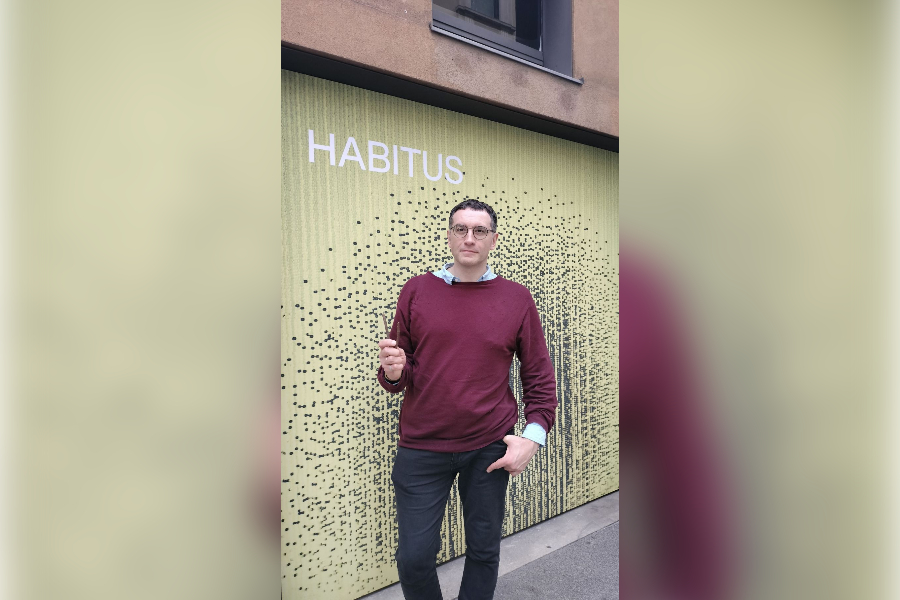
Alexander Dmitriev
Alexander Dmitriev, is an intellectual historian and literary scholar currently working as an Assistant Professor at Charles University in Prague. From 2024 to 2025, he is also serving as a DAAD Guest Professor at Ruhr University Bochum, Germany. His research focuses on intellectual history, Marxism, and literary theory in 20th-century Eastern Europe. One of his major publications is Atlantis of Soviet National Modernism (2021), co-authored with Galina Babak, where they explore the formal method in Ukrainian culture of the 1920s–1930s. Earlier, he published Marxism without Proletariat (2004), which examines the works of Georg Lukács and the early Frankfurt School. He is actively engaged in international research projects, regularly teach, and publish in several languages.
KIU research project: ‘Remaking mental maps: the ghost of Eurasianism in Ukrainian intellectual history’
The formation of new states after 1917 and the mobilization of science for this end required scholars to participate directly and in a variety of ways in the reshaping of both the political and mental maps of the continent, even in the exile. The most striking public manifestation of this polemic between the two émigré communities was the exchange of articles between Russian scholar Nikolay Trubetskoy and the prominent Ukrainian historian and politician Dmytro Doroshenko in the pages of the Eurasianist press in 1927-1928. This will allow to analyze key ideological and academic aspects of the polemics about Ukraine's European past and future during the fellowship in Viadrina.
Research interests:
- intellectual history
- Orientalism
- exile
Michael Dobbins
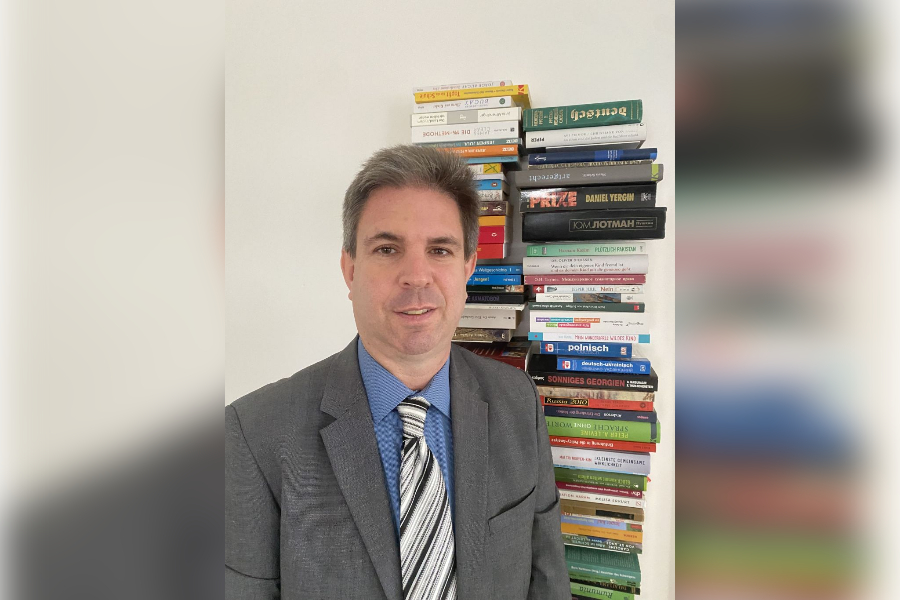
Micheal Dobbins
Michael Dobbins was previously assistant professor (Juniorprofessor) of education policy at the Goethe University of Frankfurt (2013–2021) and adjunct professor (Ergänzungsprofessor) of policy analysis at the University of Konstanz (2019–2025). His doctoral dissertation dealt with post-communist higher education. His main areas of research are education policy, post‐communist transformation processes, and organized interests. He is the co‐director of the DFG-NCN research project ‘The Missing Link: Examining Organized Interests in Post‐Communist Policy‐Making’. He is co-editor of the Springer book series ‘Ukraine verstehen’ and editor of a new German-language anthology on the politics of Ukraine (Das politische System der Ukraine: Institutionen, Akteure und Politikfelder).
KIU research project: ‘Impressing de Tocqueville? Exploring interest group mobilization in Ukraine’
While interest group scholars have increasingly engaged with the post-communist region, the neglect of Ukraine is surprising due to its tumultuous political trajectory and the resilience and political clout attested to Ukrainian civil society organizations. The project draws on established theoretical and methodological approaches of this sub-discipline of political science. Based on an online survey, it explores how critical junctures in Ukraine’s recent history (e.g., Euromaidan, full-scale Russian invasion, new lobbying legislation) have impacted the four fundamental resource arrays of Ukrainian interest groups - membership, financial resources, access to decision-makers and political issues. The backbone of the project is a dataset of approx. 9000 registered Ukrainian civil society organizations.
Research interests:
- organized interests
- post-communist politics
- education policy
Arvydas Grišinas
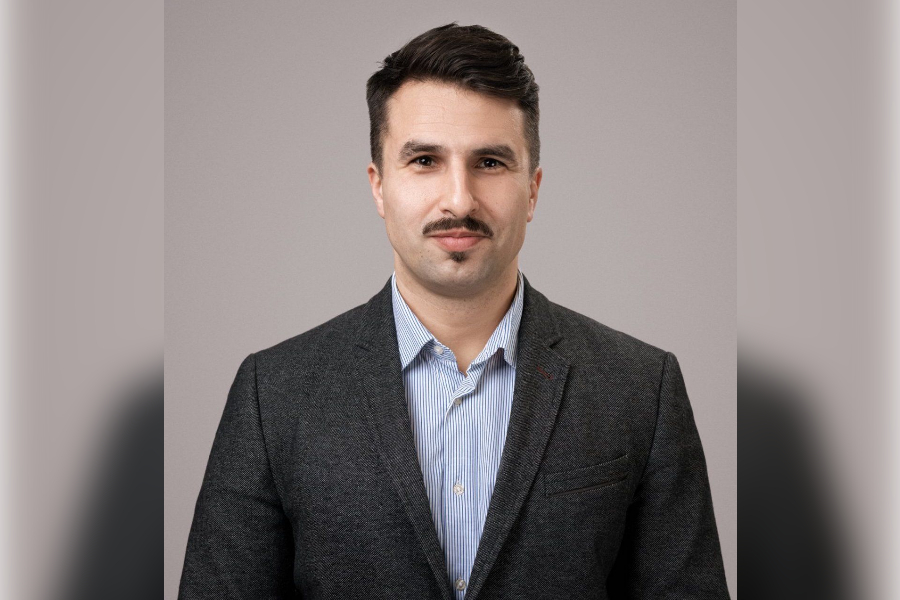
Arvydas Grisinas
Arvydas Grišinas, PhD in Politics and Government, Senior Researcher at the Ethnology and Anthropology Department, Lithuanian Institute of History, Assistant Professor at Kaunas University of Technology. Formerly held temporary scholarly positions at Yale University, Institut für die Wissenschaften vom Menschen Vienna, Uppsala University, University of Kent and Vilnius Academy of Arts. Member of the Association for the Advancement of Baltic Studies (AABS), Lithuanian Anthropological Association (LAA). Author of ‘Politics with a Human Face: Identity and Experience in Post-Soviet Europe’ (Routledge, 2018) and ‘The Western Crisis of Truth in the Early 21st Century: As the Enlightenment Dims’ (Routledge, 2025).
KIU research project: ‘Fighting with Empathy: Lithuanian Volunteers Supporting Ukraine’ investigates the culture, practices, identities, and motivations of Lithuanian volunteers who have committed themselves to supporting Ukraine’s resistance against the Russian military invasion. The project seeks to explore how long-term exposure to war, through volunteer networks, sustained media engagement, and direct field experience, shapes perceptions of national security, solidarity, and civic duty. It also seeks to understand the complex dynamics that are at work in shaping mutual understanding, friendship, and other bonds between those who support and those who are being supported. Research methods include surveys, semi-structured interviews, fieldwork, and social media research.
Research interests:
- Central and Eastern European politics and culture
- political anthropology of social and political movements
- critiques of modernity and technology
- truth and power in a digital age
Olena Lazorenko
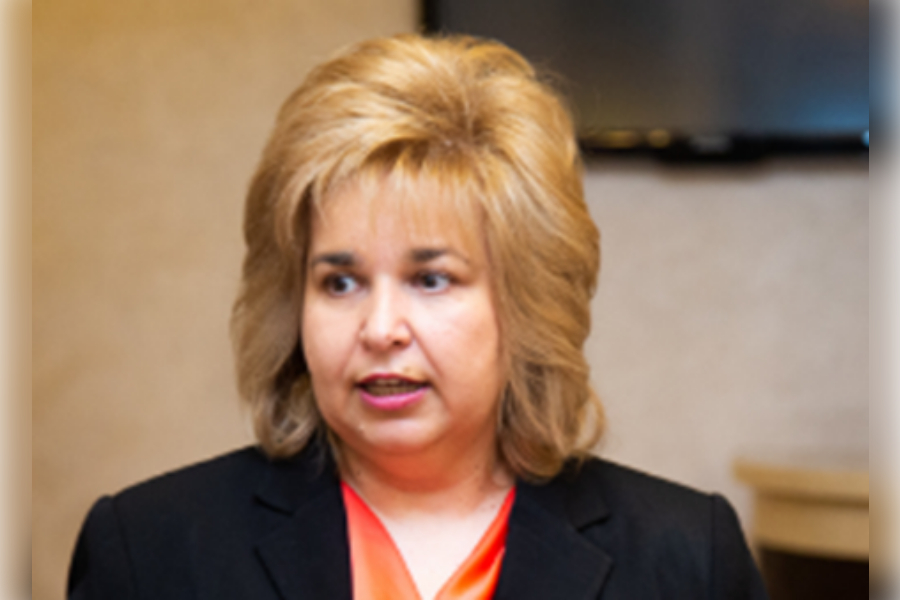
Olena Lazorenko
Olena Lazorenko, Ph.D. in social philosophy, M.A. in political science; postgraduates’ programmes and trainings in management and organizational behaviour in Duke University (USA); Warwick Business School, University of Warwick (UK); Lovanium Catholic University (Belgium), Institute of Banking Education (Slovakia). Now she is a social researcher, trainer and civil society organization leader. She holds Senior Researcher post at Institute of Philosophy of the National Academy of Sciences of Ukraine & President of NGO ‘League of Professional Women’, leader and key expert of LPW`s analytical & advocacy division. Olena elected as EaP CSF Delegate from Ukraine for 2024–2026 cycle of the Eastern Partnership Civil Society Forum. She possesses more than 20 years of proven academic, leadership, managerial experience in policy analysis, academic research, civil society leadership and advocacy. In 2001–2017, she founded and ran for 16 years services in academic entrepreneurship in Ukraine, which was sold to new owners in the spring 2017. She authored more than 80 publications on democracy issues, adults learning and education, creativity, SDGs, women empowerment, social & human capital development.
KIU research project: ‘Prospects for Building Deliberative Democracy: Civil Society in Wartime and Postwar Ukraine at European Framework’ (2025)
It aims to strengthen dialogues between German and Ukrainian academic and non-academic researchers on democratic theory and highlight what civil societies leaders, academics can do when confronted with geopolitical challenges that defy the basic tenets of democracies. A resilient and dynamic civil society is a fundamental requirement for the sustenance of democracies and its model - the deliberative democracy. Consideration will be given to the possible application of the various methods of non-formal adult learning & education and social sciences analytical studies as they pertain to the decision-making process under deliberative democracy practice.
Research interests:
- democracy theories
- social philosophy
- adults learning and education
Gaëlle Le Pavic
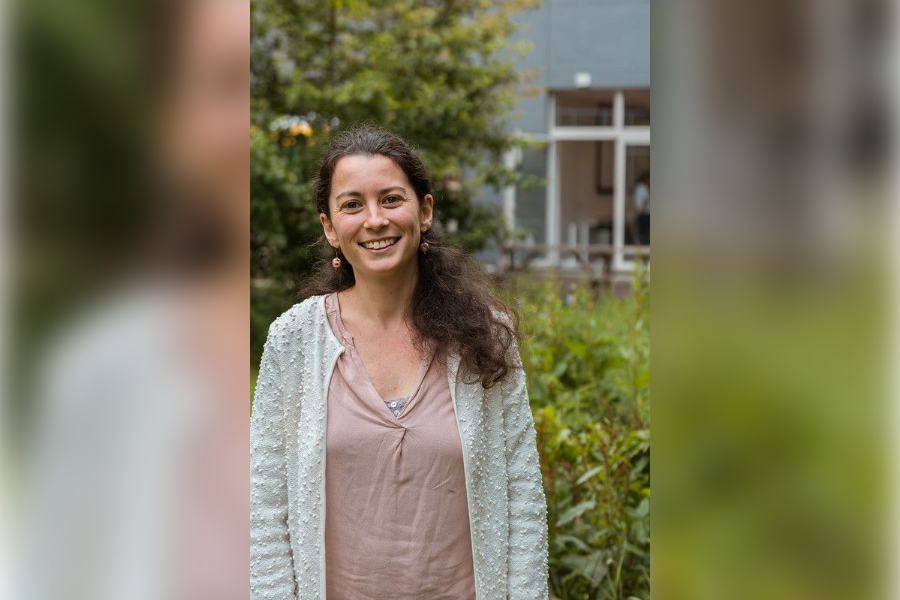
Gaelle Le Pavic
Gaëlle Le Pavic is an associate postdoctoral researcher in Social Work and Social Pedagogy at Ghent University and a fellow at UNU–CRIS. Her research explores migration, feminist geopolitics perspectives, and knowledge production. Her current work examines social support in displacement contexts following Russia’s invasion of Ukraine. She held fellowships at the Leibniz Institute for Regional Geography and the University of Fribourg, where she studied Ukrainian mothers in exile. Her PhD focused on the social impacts of contested borders in Eastern Europe and the Caucasus. She also has experience in international cooperation and research on EU migration processes.
KIU research project: ‘Social support and solidarity towards Ukrainians displaced by Russia’s full scale invasion in counter-intuitive settings: the case of Transnistria’
This research investigates social support and solidarity practices towards Ukrainians displaced to Transnistria following Russia’s full-scale invasion of Ukraine. Despite Transnistria’s pro-Russian stance, thousands of Ukrainians have taken refuge in the region. While personal networks have played a key role in providing support, the contributions of local civil society organisations (CSOs), in coordination with international actors, remain understudied. This project maps support initiatives and conducts interviews with CSO representatives, donors, and, if possible, local authorities. It also explores displaced Ukrainians’ experiences of arrival, identity, integration, return intentions, employment, and schooling within Transnistria’s contested and complex geopolitical setting.
Research interests:
- migration and border contestation
- feminist geopolitics
- knowledge production
Yuriy Matsiyevsky
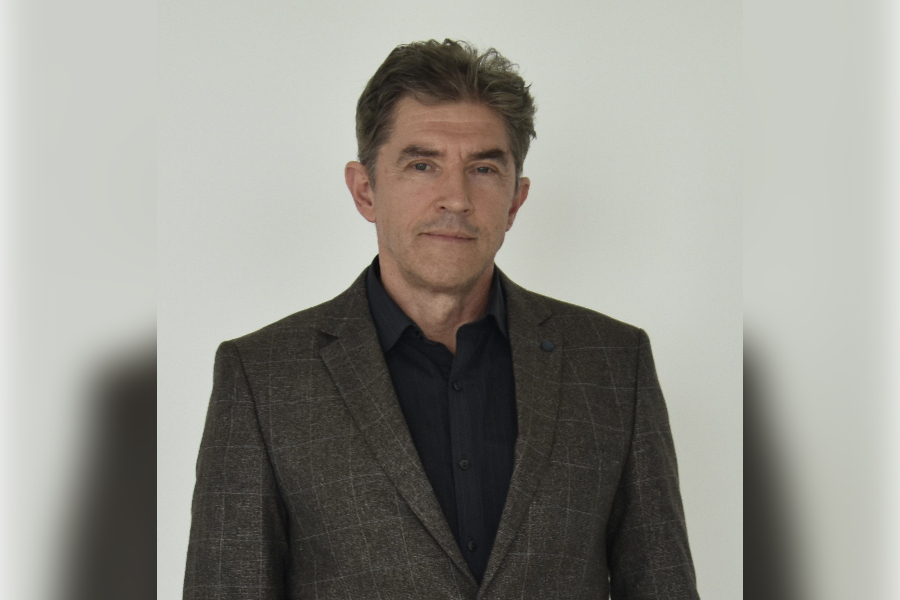
Yuriy Matsiyevski
Yuriy Matsiyevsky is Professor of Political Science and the head of the Center for Political Research at Ostroh Academy National University in Ostroh, Ukraine. He received his doctoral degree in political science from Lviv University in 1996 and habilitation from Ivan Kuras Institute of Political and Ethnic Studies at the National Academy of Sciences of Ukraine in 2016. Previously he studied at the Graduate School for Social Research in Warsaw. Since 1999 he has taught at Ostroh Academy. Yuriy Matsiyevsky has recently held several non-residential scholar positions including at the University of Toronto’s Munk School of Global Affairs & Public Policy (2024-2025) and at the IERES, GWU (2022-2023). He is a member of Midwest Political Science Association, PONARS Eurasia Policy Network, Fulbright Alumni Association, and Ukrainian Political Science Association. Dr. Matsiyevsky is the author of one monograph (2016), twelve book chapters and numerous articles on various aspects of Ukrainian politics and regime dynamics.
KIU research project: ´Identity and Resistance: Ukrainian agency in occupied territories and its European implications´
Russia’s war against Ukraine began in 2014 and has since been examined from multiple angles. However, Ukrainian resistance - particularly its full scope - remains underexplored. Early research largely focused on either nonviolent civilian resistance or unconventional warfare, providing in-depth analysis but lacking a comprehensive view of the resistance movement. Drawing primarily on open-source data, this project addresses this gap by exploring both civil protests and armed partisan actions as integral elements of Ukraine’s resistance. The integration of these dimensions contributes to a broader understanding of the war, highlighting the strength of Ukrainian identity in resisting occupation and reframing its perception in Western academic circles.
Research interests:
- Ukrainian politics
- political regimes
- democratization and informal institutions in politics
Natalia Mushak
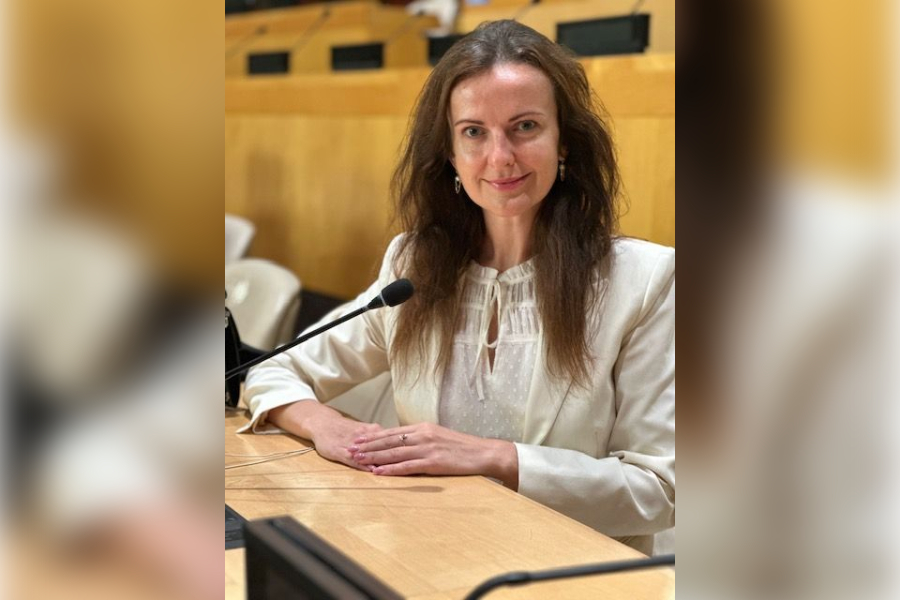
Nataliia Mushak
Natalia Mushak, Dr. Hab., Professor of International and European Law at State University ‘Kyiv Aviation Institute’. She has been a visiting scholar at Kiel Albrecht University (Germany), Masaryk University (the Czech Republic), European Humanitarian University (Lithuania), Gdansk University (Poland), Adam Mickiewicz University (Poland), Leona Kozminskiego Academy (Poland). Representative Speaker from Ukraine at the World Law Congresses in New York (USA), Barranquilla (Colombia), Madrid (Spain), Regensburg (Germany) etc. She has also contributed to policy through roles in the Ministry of Ecology and as a secretary assistant in an EU-Ukraine trade dispute. Her work bridges academic excellence and practical legal expertise in European integration and governance.
KIU-Research project: ‘The Impact of the European Court of Human Rights’ Practice on the Implementation of the Right to Freedom of Expression in Ukraine’ explores the influence of the European Court of Human Rights (ECtHR) on Ukraine’s protection of freedom of expression under Article 10 of the European Convention on Human Rights (ECHR). Despite Ukraine’s ratification of the ECHR in 1997, enforcement of ECtHR rulings remains inconsistent. It also explores how Ukrainian courts, including the Constitutional Court, apply ECtHR standards, especially under martial law, and offers recommendations to enhance the legal framework and strengthen human rights protections.
Research interests:
- European human rights protection mechanisms
- Schengen law and EU border policies
- legal aspects of European Union–Ukraine Cooperation
- migration, security, and legal responses to crises in Europe
Liudmyla Pidkuimukha
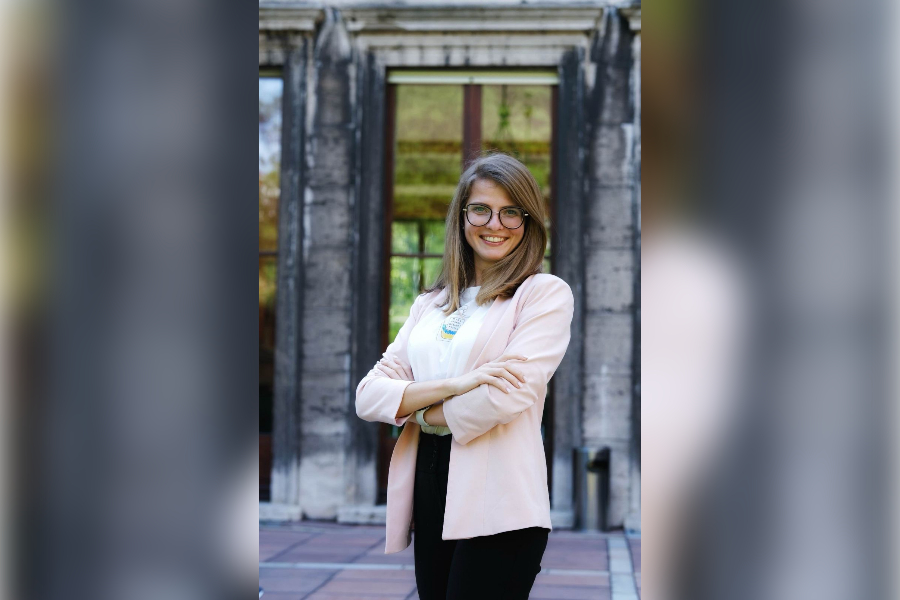
Liudmyla Pidkuimukha
Liudmyla Pidkuimukha, PhD, is a sociolinguist and Slavist specialising in language policy, ideology, and cultural studies. From May 2022 to April 2025, she was a postdoctoral researcher at Justus Liebig University Giessen, exploring language ideologies in Ukraine and Russia in the context of the Russo-Ukrainian war. She earned her Ph.D. in 2016 and has served as an Associate Professor at the National University of Kyiv-Mohyla Academy and a visiting lecturer at the Jagiellonian University. Dr Pidkuimukha has been a visiting scholar at the University of Toronto, TU Dresden, and FSU Jena. She co-founded the ‘Vision Ukraine: Education, Language, Migration’ network and advises the Young Scientists Council in Ukraine.
KIU research project: ´Language ideologies in Ukraine: legacies, disruptions, and new directions´
This project examines the evolution of language ideologies in Ukraine from the Soviet era to the post-2022 wartime context. It explores how Russian aggression has intensified efforts to promote Ukrainian as a symbol of resistance and identity, reshaping perceptions of ‘surzhyk’ as a transitional form. The study analyses shifts in language policy, the impact of geopolitical conflict, and the interplay between state initiatives and grassroots movements. Using discourse analysis, interviews, and linguistic landscape research, the project offers insights into decolonisation, national identity, and cultural autonomy, contributing to sociolinguistics, Slavic studies, and policy debates in Eastern Europe.
Research interests:
- language ideologies
- language policies
- language and cultural transformations
Nataliia Zalietok
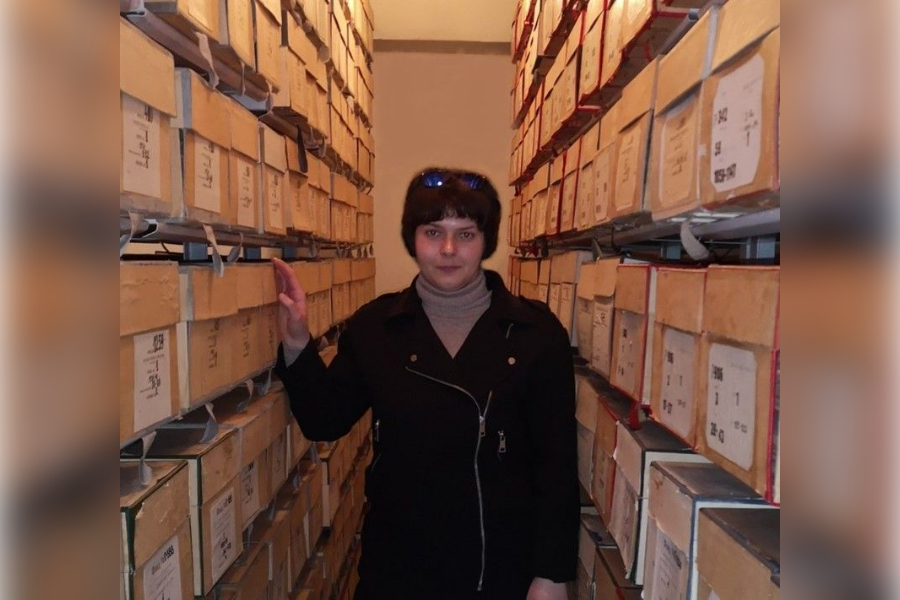
Nataliia Zalietok
Nataliia Zalietok, Dr. Hab. in History, Senior Researcher, the Head of the Department for Archival Studies at the Ukrainian Research Institute of Archival Affairs and Records Keeping. She investigates women's military service in the twentieth and twenty-first centuries and conducts research in archival science. She was a Virtual Visitor to the Buffett Institute at Northwestern University (2022), an IU–Ukraine Nonresident Scholar (2022–2024), an Imre Kertész Kolleg Fellow and VUIAS Fellow abroad (2023–2024), a DAAD Future Ukraine Fellow (2024), a visiting scholar at the Osteuropa-Institut at Freie Universität Berlin (Scholars at Risk Program, 2025).
KIU Research project: ´Constructing the image of military women in Ukrainian digital media since 2014´
The role of women in the Ukrainian military remains a pressing issue. Since 2014, many have voluntarily joined the ranks, especially after Russia’s full-scale invasion on 24 February 2022. However, gender stereotypes and remnants of Soviet-era attitudes continue to affect their service, leading to discrimination, objectification, and limited visibility as professionals. The central question of this study is how the image of military women was constructed in different types of Ukrainian edited digital media in 2014–2023, and what impact it may have on the general perception of military women in society.
Research interests:
- gender and women’s history
- comparative history
- archival science